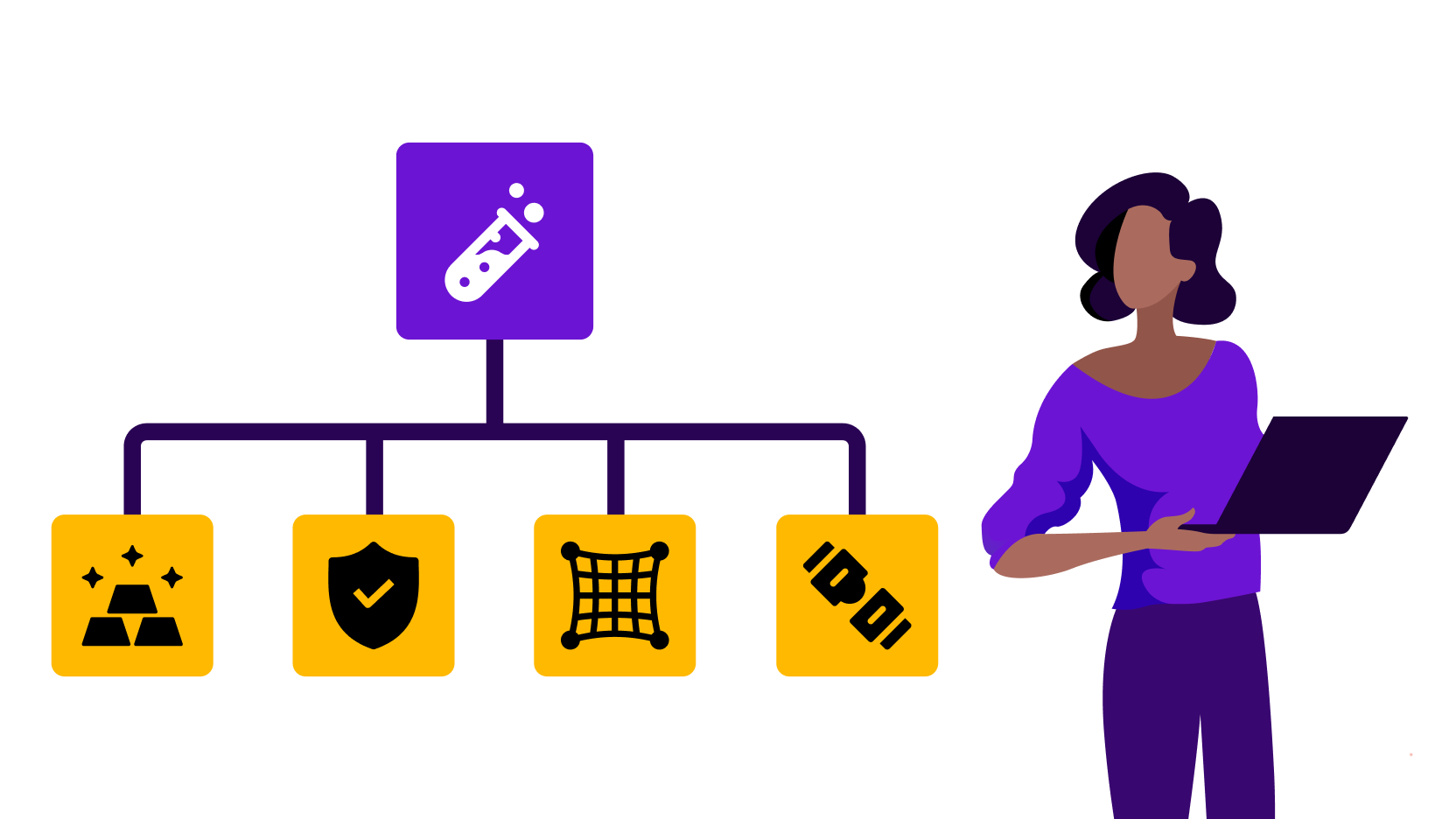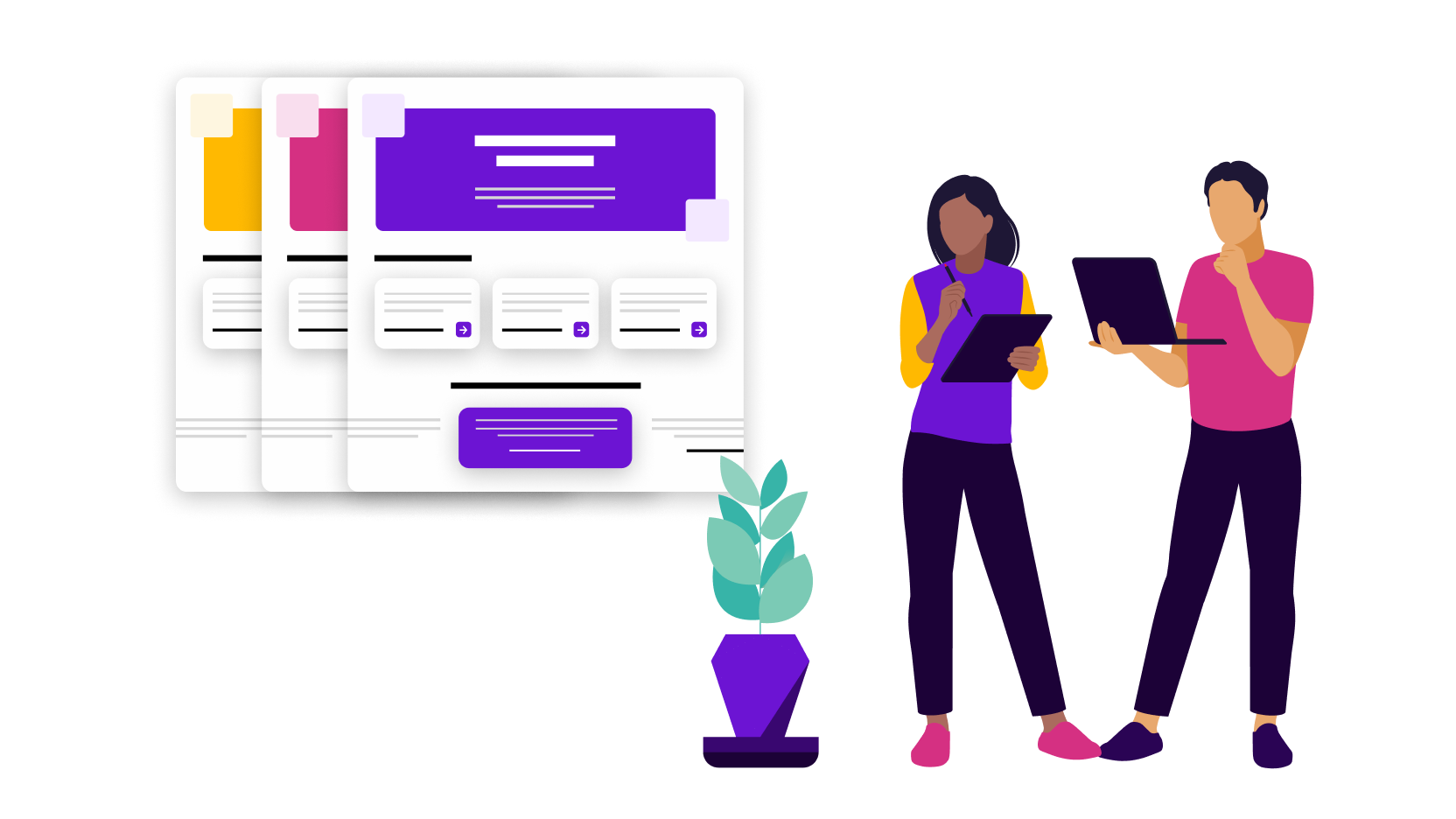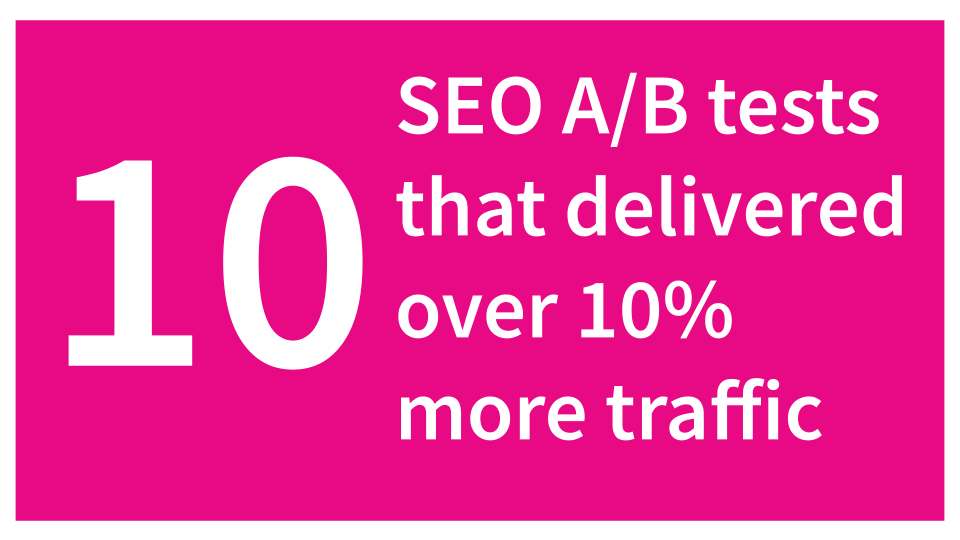Resources
The four different benefits of different test outcomes
I was inspired by a Cirque du Soleil show and came up with a new 2x2 quadrant on the value of different SEO A/B testing outcomes. Read more on the blog post.

SearchPilot Live: Dealing with Google Core Updates
Grow your Organic Traffic with these 10 Proven SEO Test Ideas
Optimizing Search: Designing an effective SEO experimentation program for Greater ROI (Pt2)
SEO A/B testing: realizing the value of a good experimentation program
Take your SEO A/B testing further. Learn why a results-driven SEO experimentation program is essential for businesses seeking improved ROI.

The four different benefits of different test outcomes
The Importance and Impact of Internal Linking for SEO
SearchPilot partners with Marks and Spencer to Power SEO Experimentation
10 SEO A/B tests that delivered over 10% more traffic + a bonus 50% winner
Read these 10 SEO A/B tests that increased traffic by at least 10% and a bonus example with a 50% lift. Get insights on title tags, pricing, and content strategies.

Does removing meta descriptions improve click-through rates?
Does reducing the height of an internal linking block improve organic traffic?
Can Placing FAQ Content Within a Collapsible Section Harm SEO?
Webinar replay: Drive Performance With These 4 Disciplines for SEO Teams
This webinar replay, presented by Craig Bradford, shared a framework on how CMOs, SEO and marketing leaders can set and achieve their SEO goals. He also shared examples of how to apply this framework for specific teams, such as technical SEOs, SEO testing teams, and agencies.

Webinar replay: 10+ Must-Try SEO Test Ideas for Fashion Retailers
SearchPilot Live: Turning SEO into the channel you always wished it could be
SearchPilot Live - Coordinating SEO and CRO testing
Supercharge your Organic Traffic Growth with Data-Driven Strategy
Increase your organic search traffic with SEO A/B testing. Learn how to measure the impact of website changes, stay ahead of the competition, and make informed decisions with data and analytics from SEO A/B testing. Download this solution brief to learn more.
Grow your Organic Traffic with these 10 Proven SEO Test Ideas
SEO A/B testing: Realizing the value of a good experimentation program
Boost your Website Results and Increase Organic Traffic with SEO A/B Testing
[Webinar Replay] - Optimizing Search: Designing an Effective SEO Experimentation Program (Pt1)
Tune in to the replay of Part 1 of our 2-part webinar series on setting up a successful Experimentation program to drive more growth.
![[Webinar Replay] - Optimizing Search: Designing an Effective SEO Experimentation Program (Pt1)](https://www.searchpilot.com/hubfs/Part%201_7.%20Twitter%20with%20alt%20CTA.png)
Video and Slides - Will Critchlow's Mozcon 2022 Talk
BrightonSEO (San Diego) 2023 - SEO in Turbulent Times
A free tool to help you generate 8 million SEO test ideas
Building Growth Teams at Rocket Ship Startups with Brian Hale (VP at DoorDash and ex-VP at Facebook)
My guest Brian Hale joins me for the final episode of Season 1 of the Business Class Lounge. He is VP of Growth at DoorDash. We met over a decade ago when he was in the growth team of Facebook, and we got to work on some SEO initiatives. In the intervening decade, he rose through the ranks to become VP of Product Growth across Facebook before joining DoorDash.
